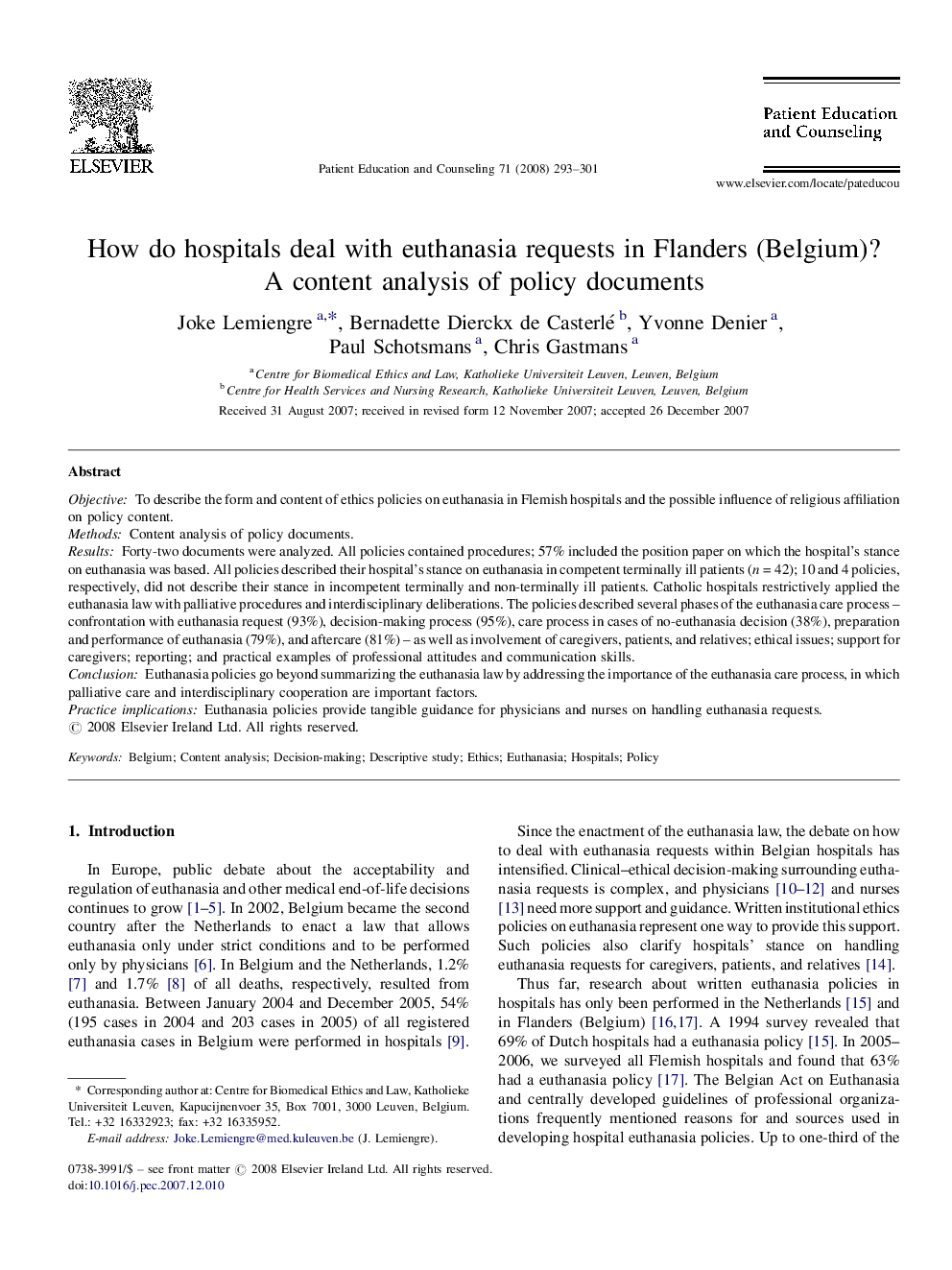| Article ID | Journal | Published Year | Pages | File Type |
|---|---|---|---|---|
| 3815214 | Patient Education and Counseling | 2008 | 9 Pages |
ObjectiveTo describe the form and content of ethics policies on euthanasia in Flemish hospitals and the possible influence of religious affiliation on policy content.MethodsContent analysis of policy documents.ResultsForty-two documents were analyzed. All policies contained procedures; 57% included the position paper on which the hospital's stance on euthanasia was based. All policies described their hospital's stance on euthanasia in competent terminally ill patients (n = 42); 10 and 4 policies, respectively, did not describe their stance in incompetent terminally and non-terminally ill patients. Catholic hospitals restrictively applied the euthanasia law with palliative procedures and interdisciplinary deliberations. The policies described several phases of the euthanasia care process – confrontation with euthanasia request (93%), decision-making process (95%), care process in cases of no-euthanasia decision (38%), preparation and performance of euthanasia (79%), and aftercare (81%) – as well as involvement of caregivers, patients, and relatives; ethical issues; support for caregivers; reporting; and practical examples of professional attitudes and communication skills.ConclusionEuthanasia policies go beyond summarizing the euthanasia law by addressing the importance of the euthanasia care process, in which palliative care and interdisciplinary cooperation are important factors.Practice implicationsEuthanasia policies provide tangible guidance for physicians and nurses on handling euthanasia requests.
